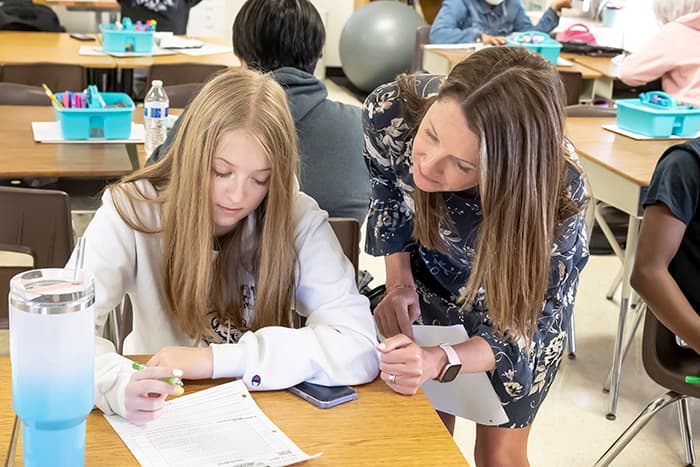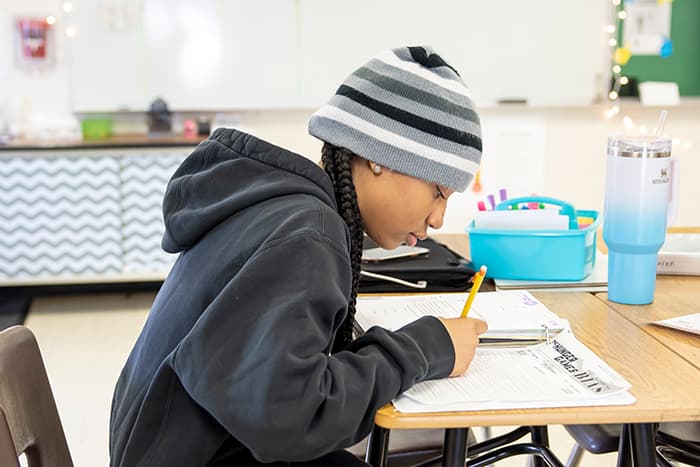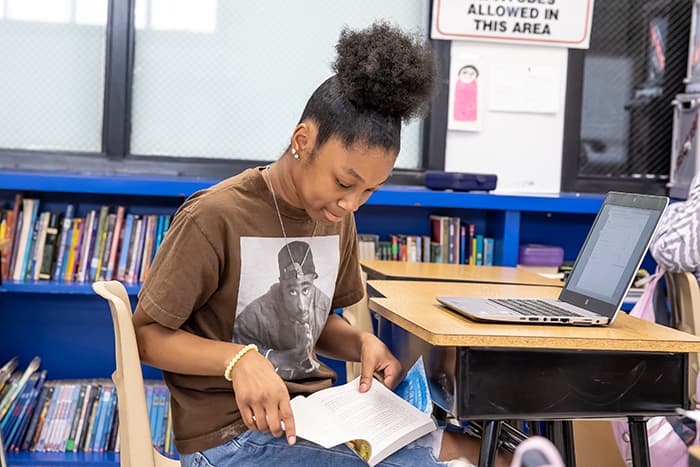Reading Specialists Support Student Success in Reading and Beyond
May 22nd, 2023
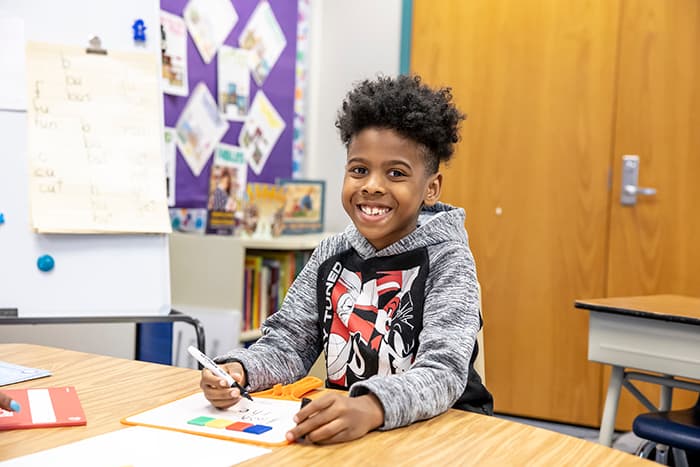
Reading is a central part of every HCPSS student’s education. And yet, as Longfellow Elementary School reading specialist Erin Winston notes, reading isn’t a skill that always comes easily.
“Reading is a complex skill. Most people need support and a lot of practice to really get it down.”
So what happens when an HCPSS student struggles to read? Reading specialists like Winston step in to help. She and her colleagues—who are trained in a variety of programs to address a vast array of reading issues that arise in students—work behind the scenes at every HCPSS school, partnering with classroom teachers to ensure that students who are reading below their grade level receive the reading support they need to progress and graduate high school.
Camille Washington, a reading specialist at Forest Ridge Elementary School, says that the process of helping students read begins with getting to know them.
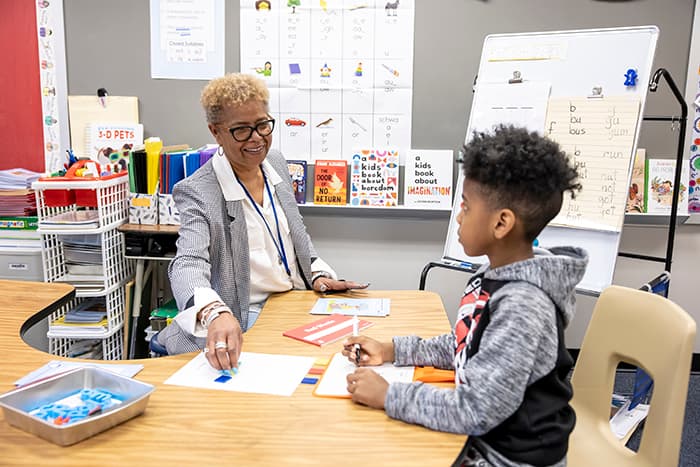
“I want to know what they are interested in and excited about, and use that information to begin to nurture their interest in reading.”
Washington and other reading specialists also conduct formal and informal assessments and have discussions with their students’ teachers to better understand their students’ reading-related needs.
“We use the assessment data and those conversations to try to get a picture of who the student is as a reader,” explains Kristen Vance, a reading specialist at Oakland Mills High School. “We try to get a clear understanding of what their particular reading challenges are, so that we know whether they need to work on their foundational skills, like decoding words, reading comprehension, or both.”
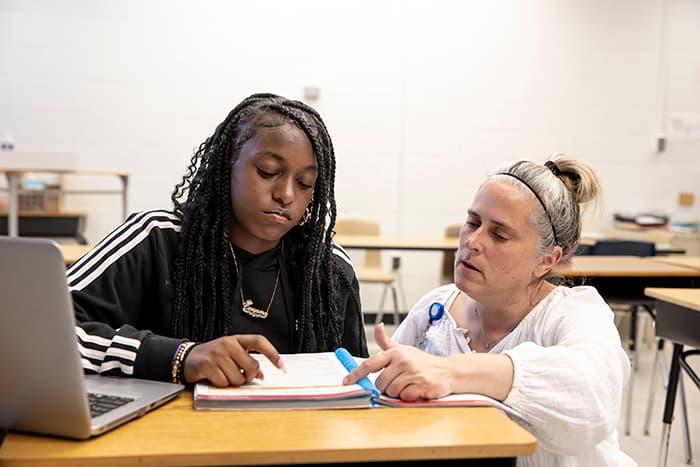
Once a reading specialist identifies the source/nature of a student’s reading difficulty, they begin to develop and implement appropriate interventions. For example, if a student struggles to read and identify words, a reading specialist might work with them on letter sounds, prefixes, suffixes, and roots, breaking words into syllables, and learning spelling rules. If, on the other hand, a student has difficulty with reading comprehension, a reading specialist might teach them comprehension strategies, like highlighting key words and main ideas, identifying the text structure and purpose, chunking texts into smaller sections, annotating, gathering and evaluating evidence, and using headings, subheadings, and captions to help guide their understanding. In certain content areas, like science and math where technical jargon is used, reading specialists also help students by providing them access to supplemental resources designed to build their background knowledge and confidence with the vocabulary and concepts used in that content area.
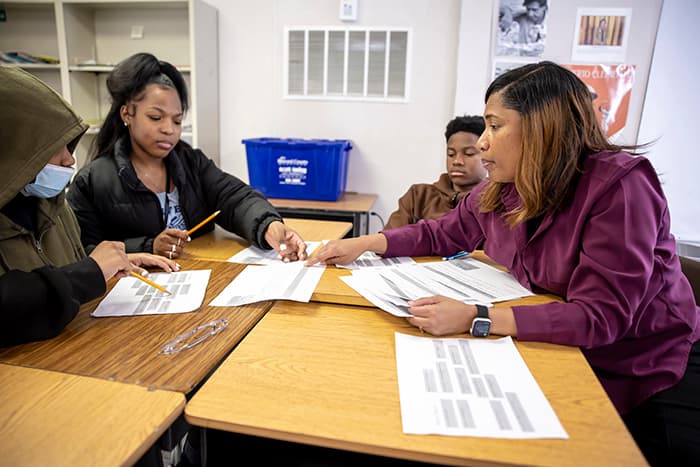
Depending on a student’s grade level, the format in which they receive reading support varies. At the elementary level, students who are reading below grade level often work one-on-one or in small groups with a reading specialist during independent rotation time in their Language Arts classes. In middle and high school, students with reading difficulties can enroll in classes that are specifically designed to improve their reading proficiency. Taught by reading specialists, these classes help students build vocabulary, fluency, and comprehension in different content areas while also improving their reading levels.
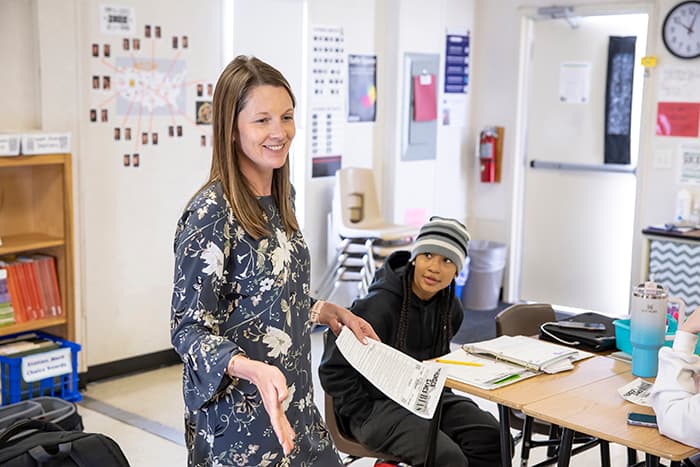
Reading specialists continually evaluate their students’ progress to determine whether the interventions they have put in place are effective. As HCPSS Coordinator of K-12 Reading Intervention, Access and Opportunity Shannon Fuller notes, “we are constantly monitoring students and gathering data through assessments and observations to ensure that we are closing the gaps in students’ reading levels and helping students to access what is being taught in the classroom. If the data shows that a given intervention isn’t working, we will work to figure out why and make necessary adjustments so that students continue to progress.”
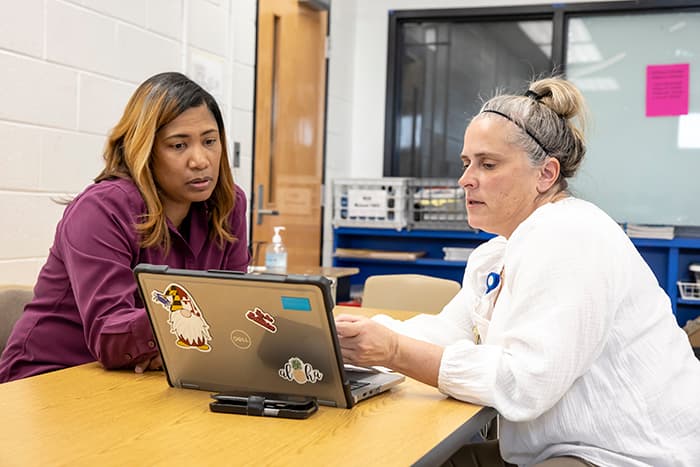
Reading specialists can also serve as a resource to parents, Washington says.
“Reading specialists in any school are available to parents who have questions or are looking for ways they can support their child in reading and writing, whether we work with their child or not.”
In addition, reading specialists support classroom teachers by providing them with reading resources, strategies, and professional development opportunities. As Lake Elkhorn Middle School (LEMS) reading specialist Kellie Frey says, “we try to help teachers understand what they can do to support their students who need extra help with reading. We give them different ideas to try and problem-solve, so that their students can get the most out of what they are doing in their classes.”
Related to this, reading specialists work with classroom teachers to ensure their work aligns with what students are doing in their content classes.
“We always try to tie [our] work to what students are learning in their content-area classes,” explains Emily Warner, a reading specialist at Howard High School who teaches a reading intervention class called Strategic Reading.
Recently, that meant students in Warner’s 10th grade reading class were focused on reading activities related to genetics, which they were studying in their biology class. Those activities included lessons to help students build and understand genetics-related vocabulary as well as guided reading exercises, where students had the opportunity to read and analyze articles about genetics and genetic testing.
“Our goal is to help make the curriculum more accessible so they don’t miss out on important material in math, science, social studies, and other subjects while working to improve their reading level,” Warner adds.
Among the students in Warner’s 10th grade class are students Shaw and A’Shaday, both of whom began receiving reading support in middle school.
“I am so much more confident now. I know I can figure things out,” says Shaw. “I always used to struggle … because I would have to look up everything. Now I’ve learned ways to break apart words and can focus more on what I’m being asked to do in an assignment.”
A’Shaday also feels more confident in her reading abilities as the result of her work with Warner and other reading specialists in the county.
As she notes, “In the past, I always had to have a teacher read things to me and explain what they meant. I felt very overwhelmed and stressed about school. Now, it’s so much easier. In my reading classes, I’ve learned how to break words apart and put them back together, which has been really helpful, especially in my English and biology classes. I’ve also learned how to analyze text and how to take good notes. I feel like I can fix my own problems now; I don’t always have to rely on someone else to help me.”
Ultimately, reading specialists aim to equip students with tools and resources that they can use to not only improve their reading level, but also succeed in school and beyond.
“We do our best to help students read, comprehend, and progress in all areas,” says LEMS reading specialist Dierde Hill.
“Reading is a life-long skill,” adds Winston. “We want our students to be successful beyond the walls of our classrooms. If they can read and understand the world around them, we can ensure that they can take advantage of every opportunity presented to them.”
For more information, listen to our podcast “Learning to Read; Reading to Learn,” featuring a discussion between Superintendent Dr. Michael J. Martirano, Shannon Fuller, HCPSS’ Coordinator of K-12 Reading Intervention, and Stephanie Milligan, HCPSS’ Curriculum Coordinator for Elementary Language Arts about HCPSS’ elementary reading program. The program provides multi-faceted reading instruction and supports with the primary goal of preparing our young students to be strong, capable readers throughout their educational journey.
 HCPSS
HCPSS